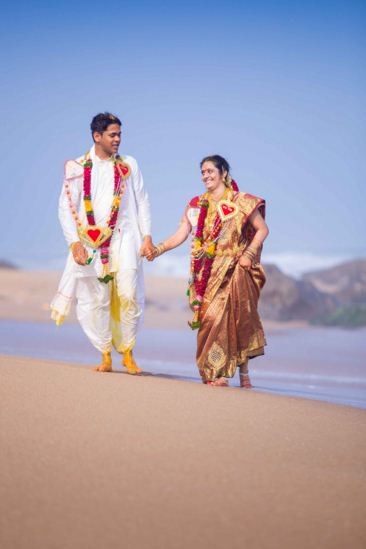 (Photo:prom dresses uk cheap)
(Photo:prom dresses uk cheap)
The story goes that when Sadhana was making her debut in R.K. Nayyar’s Love In Simla, the director was unhappy with the actress’ final “look”. In the film, Sadhana played a Plain Jane who’s ignored by the hero Joy Mukerjee — until her grandmother gives her a magically transforming makeover. Sadhana had already got her make-up done, but Nayyar saab was not satisfied with the effect.
“I had a broad forehead… therefore Nayyar saab decided to give me a different hair style which would hide my forehead. (He) had seen the Hollywood actress Audrey Hepburn, who used to have a fringe. He brought a picture of Audrey Hepburn and showed it to our hair stylist. The idea clicked as the fringe worked wonders and became famous as the ‘Sadhana cut’,” the actress had said, in an interview.
Sadhana would go on to marry R.K. Nayyar, and her haircut and sartorial style would go on to influence a generation of filmgoers. At a time when heroines certainly didn’t focus as much on their styling as would be the norm today, Sadhana was a trendsetter. Whether it was her famous fringe or body-hugging churidars and kurtas (which veteran designer Bhanu Athaiya helped create for her), an entire generation of women in the 1960s (and 70s) wanted to emulate Sadhana’s style.
Says celebrity hairstylist Jawed Habib of the “soft power” Sadhana enjoyed as a style icon, “Sadhana created a revolution in the industry at a time when nobody paid much attention to their styling. She brought about a change (much) before Zeenat Aman entered the industry. If you look closely, leading actresses like Meena Kumari, Vyjayanthimala paid very little attention to their hair. When Sadhana came in, she brought in the styling that Bollywood really needed.”
Make-up artiste Vipul Bhagat points out that the fringed haircut wasn’t her only legacy — even the winged eyeliner that was so popular in the past, and which has made a comeback today, was adopted by Sadhana as a part of her ‘look’ very early on. It was perhaps the way she had, of not just picking up what was trendy, but making it uniquely her own, that makes her look “one of the reference points of Indian cinema” even today, says Bhagat.
In one of her rare interviews, Sadhana had herself mentioned that she was different from her contemporaries — which was probably what contributed to her appeal. She has said that she was “convent educated” (which might also be extended to mean that her sensibilities were more Westernised) and “not conventionally beautiful”. “But I had a freshness,” she had said, analysing what might have been her allure for millions of filmgoers, as well as the filmmakers of her day.
Celebrity hairstylist Perry Patel seems to agree with the actress’ impression of herself. “In the time and age of cinema where there was no knowledge of haircuts and sporting long, flowing hair was the trend, Sadhanaji decided to do something that was very Western — she sported the fringe cut. In those days, people usually thought that the rich and the famous, who are a little Westernised, don such looks. But the special thing about Sadhanji was that she was totally Indian and managed to pull it off so well. She was the first actress who sported that look on screen and that’s how the cut became so famous. I remember later many actresses like Babitaji and Tanujaji followed suit. But nobody was as iconic as her, to have a haircut coined in his or her name,” Patel says.
Even the particular style of churidar-kurta she wore in films like Waqt became synonymous with Sadhana. Fashion designer Leena (of Ashima-Leena) recollects that when their label came out with a line of lycra shirts and lycra printed tights back in 2007, the feedback they received was that the style was reminiscent of Sadhana’s fashion statement. Leena says the actress’ style statements proved so memorable because they were so “ahead of her times”. On the other hand, designer Anupama Dayal feels it had more to do with the “********y-yet-demure” vibe Sadhana conveyed — the perfect balance. “No wonder she was called the Audrey Hepburn of India. Consciously or subconsciously, her style still has an impact on us. I think what makes her an icon is that her outfits or even her hair had an element of individualism. It was different, she carried it off well and this stuck with the general public,” says Anupama.
Says designer Aniket Satam, “She was, and always will be, truly inspirational. The Sadhana kurta was a boon to Indian women who (wanted to) sport stylish ’60s silhouettes like sheath and shift dresses with form-fitting churidars. The style brought body-con ********iness to the regular Indian wardrobe.”Read more at:2015 prom dresses uk
 (Photo:
(Photo: (Photo:
(Photo: (Photo:
(Photo: Michael Kors' secret to success
Michael Kors' secret to success Edeline Lee AW16 presentation at London Fashion Week
Edeline Lee AW16 presentation at London Fashion Week Leanne Marshall's FW16 Collection At NYFW
Leanne Marshall's FW16 Collection At NYFW Discover the fabric of the Octagon Theatre at a special exhibition of costumes
Discover the fabric of the Octagon Theatre at a special exhibition of costumes Costume Designer Patricia Field ********s About Closing Her Namesake Store
Costume Designer Patricia Field ********s About Closing Her Namesake Store Bridal Extravaganza at Label 24
Bridal Extravaganza at Label 24 Cinematic Weddings Offers Custom Cinematography Services in India :
Cinematic Weddings Offers Custom Cinematography Services in India :